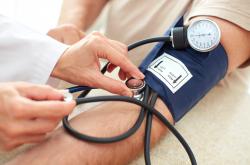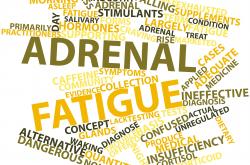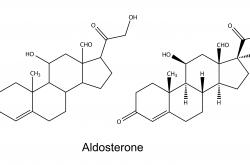Low Blood Pressure and the Fatigue Conundrum
Where blood pressure is concerned, most of society’s emphasis is on what happens when that pressure gets too high. Hypertension is, after all, a major concern in much of the world. Hypotension – otherwise known as low blood pressure – receives much less attention, despite its clear impact on fatigue.
Blood pressure, or hypertension, is among the most important components of good health. For many people, however, maintaining that pressure at just the right level can be a struggle. Often times, due to diet and lifestyle choices, people find that their blood pressure is far too high. Various diseases and infections can also cause that condition. Given the dangers associated with hypertension, it is no surprise that many people strive to keep that pressure as low as they can.
The problem is that low blood pressure can be dangerous too. It can cause a variety of ill effects, and often serves as an early warning sign of a more serious condition. To get an idea of how serious this drop in pressure can be, it is only necessary to examine the symptoms:
Symptoms Associated with Low Blood Pressure
- Patients are often lightheaded or dizzy
- Vision can be blurry or otherwise impaired
- Nausea and vomiting can occur
- Sleep disturbances happen frequently
- Many patients being to show signs of depression when blood pressure is consistently low
- It becomes hard to stay properly hydrated
- Fainting can occur
- Weakness can be an issue
- Concentration and focus become difficult
- The skin can become clammy
- Endurance plummets
- Anemia can set in as iron doesn’t get where it needs to go
- Breathing shortens and hastens
- Lethargy can set in as the patient feels continually fatigued
Whenever you experience several of these symptoms together, it is a good idea to consult with your family physician.
What Causes Low Blood Pressure?
Since blood pressure is simply a measurement of the amount of pressure that exists within the arteries during both the pumping and resting phases of your heartbeat, anything that can modify that pressure can result in a lower than normal reading. It’s important to remember that blood pressure is rarely the same. It varies regularly, and can be affected by even mundane factors like how you are breathing or the level of your fitness. Even your diet can impact it.
Blood pressure drops in certain situations, such as when you are bleeding profusely, or during allergic reactions. A big drop can be so dangerous that it threatens your life! But there are other factors that contribute as well, including medical conditions. Pregnancy tends to cause such a drop, due to the expansion of the circulatory system within the mother’s body. Heart attacks can prevent enough blood from getting to the heart, and that can cause a drop as well.
The thyroid can be a problem too, leading to weakened adrenals such as that found in Addison’s disease, hypoglycemia, or even diabetes. Even something as seemingly minor as insufficient hydration can cause a lowering of pressure. Finally, poor dietary choices and certain medications can produce the same effect.
How Does Low Blood Pressure Cause Fatigue?
The answer to the question of how low blood pressure can cause fatigue hinges on the nature of blood’s role in the production of energy. In order for the mitochondria within the cells to receive the nutrients needed for energy production, those nutrients have to be delivered by the circulatory system. When there is a disruption in the flow of blood – even a minor change – that energy creation process can be disrupted as well.
Even so, there is more to the process than even that. Many of the symptoms associated with low blood pressure are themselves causes for fatigue. For example, the sleep disruptions caused by this change in blood volume are an obvious source of tiredness. So too is the anemia that can accompany this condition. In short, when blood pressure falls to unsafe levels, most of its worst effects contribute to a general decline in the body’s level of energy.
How Can You Manage Fatigue Caused by Low Blood Pressure?
The first thing to do if you suspect that you suffer from low blood pressure is to have it properly checked by your physician. Even if you have your own pressure cuff, it is still important to confirm any self-diagnosis, since what you perceive to be low pressure may actually be within the normal range for you.
Depending on the actual causes for your condition, your doctor may suggest any of the following treatment options:
- Additional sodium in your diet
- More water to secure proper hydration and boost fluid volume
- Various medications
- Compression stockings to prevent blood from pooling in the legs
- A healthier diet, and possibly a low-carbohydrate plan
While it is good to have lower blood pressure, there is such a thing as too low for your own good. By learning to recognize the symptoms of hypotension and hypotension-related fatigue, you can be better positioned to take action and counter that exhaustion.
You might also be interested in:
- What causes low blood pressure? 40 possible conditions. http://www.healthline.com/symptom/low-blood-pressure
- Low blood pressure (hypotension). http://www.mayoclinic.org/diseases-conditions/low-blood-pressure/basics/causes/con-20032298
- Low Blood Pressure (Hypotension) - Topic Overview. http://www.webmd.com/heart/tc/low-blood-pressure-hypotension-topic-overview



















Leave a comment